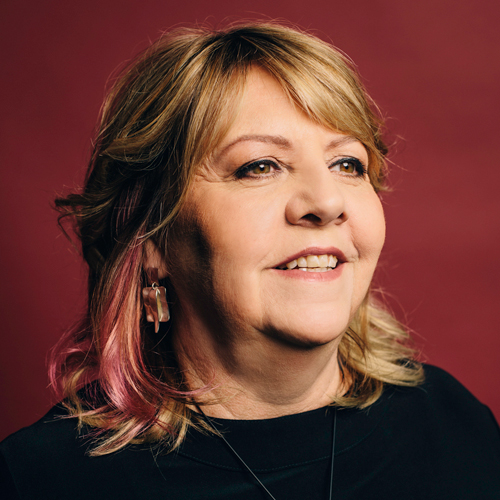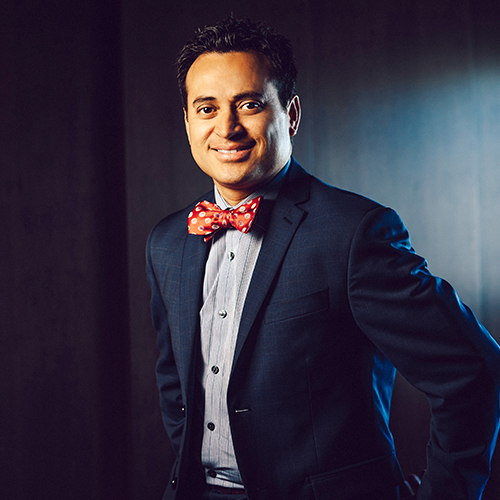Marcelo Modica is as “HR” as a human resources professional can get. He is the chief people officer for Mercer, the largest global human resources consulting leader in the world.
“Me having my job is like somebody who loves chocolate working for a chocolate company,” Modica says. “Running HR for one of the world’s largest human capital companies, I have access to the best people with the most cutting-edge ideas in
the industry.”
Mercer works with more than 21,000 employees spanning 140 countries—making Modica’s job crucial. Especially if you consider that the company is one of the largest in the world that gets paid by clients for ideas, but produces no tangible product. Mercer’s product is its people, which Modica says is one of the most fascinating parts of his job—but it also has its challenges.
“Every day, our employees—who are the key to our success—get into their cars and trains and leave,” Modica says. “So the challenge we have is the same as many companies: how do you make sure those people come back and how do you make sure you have the best, retain the best, and track the best results?”
Without the best people, Mercer isn’t executing its most crucial task: providing the best health, wealth, and career solutions for its clients. As the chief people officer says, clients aren’t going to pay for yesterday’s ideas. So the question becomes: how can Mercer attract, retain, and grow the best and the brightest, while at the same time, cultivating an inclusive environment for these employees so that everyone thrives? As it turns out, technology really helps.
For many years, technology investment in HR departments hadn’t been the highest priority, but companies have really been pushed to reevaluate technology in this space. As big data, cloud computing, and data analytics have become ubiquitous, HR is embracing technology—and that’s certainly true at Mercer.
Mercer By the Numbers
21,000
Mercer’s executive leadership team—led by Hispanic CEO Julio Portalatin—sets the agenda for 21,000 colleagues all over the world.
110M
With tens of thousands of clients, Mercer affects the lives of over 110 million employees worldwide.
140
Mercer works with clients in 140 countries around the world.
#1
Mercer is the largest human resources consulting firm in the world and has been ranked the best by vault.com for several years running.
“Right now is an interesting time for HR leaders in particular because it’s a pivot; it’s the tipping point between what they’ve historically done and what they will need to do moving into the future,” Modica says. “This includes using analytics to understand if the organization is thriving or if sentiment is fading among employees based on their level of involvement. You can look at data to see all of this and to get ideas on how to improve engagement, develop people, and customize solutions to make that possible.”
The key, he says, is not just having access to data, but also really doing the work to understand it and utilize it. Mercer’s focus is on health, wealth, and career—and understanding the data means using it to create the best career and life inflection points for a thriving organization.
“That might be different for women and men or Latinos and non-Latinos, and yet also similar across groups. Understanding data helps you understand how to help people be the best they can be at work and exceed their own expectations; it means developing skills, improving health decisions, and thinking about how to approach savings,” he says.
Modica’s short-term and long-term goals are one in the same: he wants Mercer to continue exploring all that technology has to offer in order to navigate the company’s challenges, while also continuing to innovate for clients. So far, it’s off to a great start with a number of new products the company recently launched.
Mercer Match, for example, is an app that has users play a series of games to better understand their preferences and what their specific qualities make them best suited for career-wise. After completing a short session on the app, users will be presented career recommendations and can be connected to actual jobs.
“Today, it’s important to help people better understand themselves in a fun, interactive way that leads to new ideas and, ideally, new careers,” Modica says.
Mercer’s research suggests that by 2020, 50 percent of the US workforce will have some type of freelance income in their portfolios, and it’s Modica’s goal to make the most of this. He calls this the “Uberization” of the workforce—similar to the way Uber drivers have full-time jobs and make extra income driving.
“The freelance economy isn’t a threat to companies, but rather a modern workplace framework,” he says. “The question is: how can we—and all companies—use this flexibility to our advantage?”
Mercer also has an app for that. People Pro is basically an on-demand HR consultancy company that allows smaller companies that are just beginning to grow and develop more sophisticated HR questions to get the help they need online by connecting with specialists in their area through the use of an app.
Moving forward, the chief people officer also aims to expand the use of Mercer Marketplace 365, the company’s benefits platform that makes it easier for employees and employers to make healthcare choices. Mercer Marketplace also takes users through a series of suggestions, helping them make the right choices based on their particular healthcare needs.
“I want Mercer to be a showroom of its best solutions, and not just because our colleagues take tremendous pride in the solutions they develop, but because we believe they are world class,” Modica says.
There’s a theme to Modica’s work, which just so happens to also be Mercer’s statement of purpose: making a difference in people’s lives by making tomorrow today. This takes shape in a multitude of ways—whether it’s leveraging apps to help people find the careers best suited for them, or giving employees a newfound purpose in giving back.
Volunteerism is one of Mercer’s core values and, according to the company’s latest figures, Mercer employees have logged more than 85,000 hours volunteering across the world. Although much of the focus is on education, employees also concern themselves with their local communities, addressing hunger and homelessness.
“People take tremendous pride in volunteerism,” Modica says. “What I find so fascinating is that these people are full-time employees who are also parents or who care for their own parents. Volunteers are very busy with many commitments, but choose to spend the little free time they have helping others. It gives me chills just thinking about it.”

